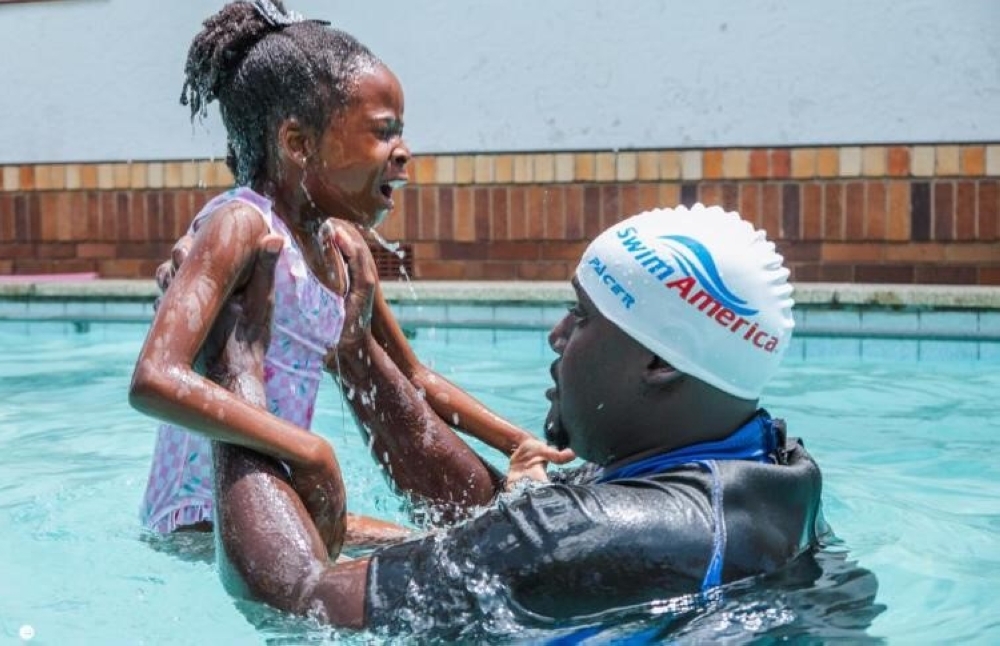Teaching children water safety and swimming
After chasing this passion to help others, he became a certified swimming instructor with the American Swimming Coaches Association (ASCA). Kahlari is now a certified level 5 Education, Level 3 Performance and also certified with the ASCA Swimming Strength and Conditioning course.
He went on to complete the Swim America, a swim program of ASCA which is a swim school licensing program for professional coaches and swim school operators.
Kahlari says basic swimming skills and water safety programs are non-existent in the Namibian schooling system and children drown due to lack of water safety skills and awareness. “Swimming is a sport or activity that is least pursued in Namibian Schools due to lack of facilities to qualified coaches. “I discovered I was inspiring others to do the same, so you could say at that point I found my coaching calling. The teary-eyed thanks I get when I help someone see their worth, potential and the possibilities in their water safety journey is indescribable. And it’s why I do it. Coaching is the most selfless thing I can do,” he said.
The process
Children register and pay for the classes. Kahlari makes use of the Swim America Station based Learn To Swim program from the ASCA. Swim America is a highly effective swim school licensing program for professional coaches and swim school operators with over 1000 sites spread throughout the world.
“I am proud to say that in Africa we are listed on the swim America location finder as one of the three countries after Botswana and South Africa,” he said.
Swim America is progression-based learning system that includes ten stations. As each child performs the respected skills for each station they move to the next station. Not when everyone does, but when they are ready.
Certificates of completion are awarded to the children when they complete a station. These certificates indicate the stations and skills listed for each.
“Once a child has performed all skills in the station, they get a sticker from those stations. Parents and kids love these because it shows the child’s progression. Each program director has the liberty to create a fun and exciting way to recognize a child’s progression in each station and to acknowledge a child’s achievement from one station to the next,” he said.
Kahlari considers it important for children to learn how to swim while young because drowning is a major killer of children. The lack of capable supervision of children is one of the main risk-factors for child drowning while institutional supervision of children through formalized day-care arrangements with communities can reduce from drowning.




Comments
My Zone
No comments have been left on this article